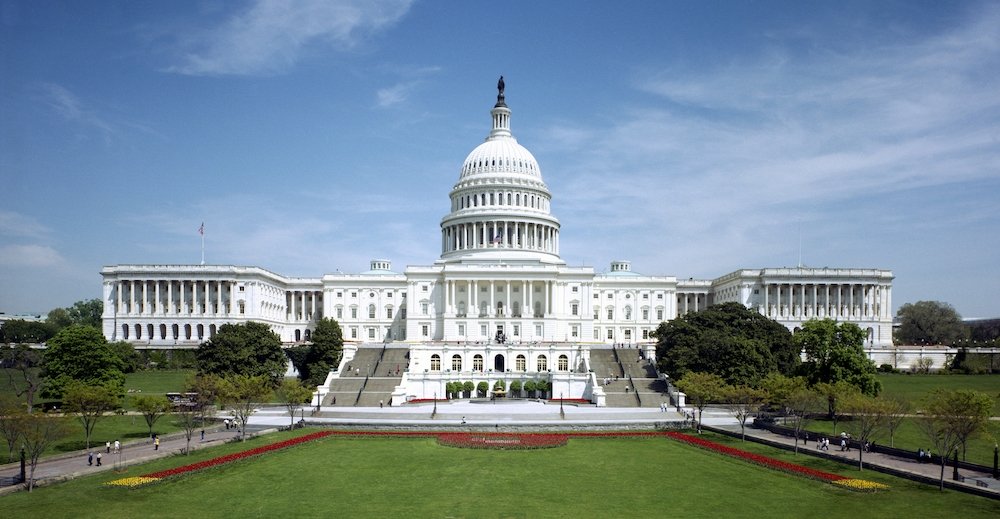Microsoft and Google are publicly sparring over their treatment of media publishers amid increased government antitrust scrutiny of Big Tech's effects on journalism.
A U.S. House antitrust subcommittee held a hearing on Friday that focused on the ways that Google and Facebook distribute news. In written testimony for the hearing, Microsoft President Brad Smith criticized Google for making journalism outlets dependent on its services while profiting from their content.
"While it's important to recognize that referral traffic does have value, monetizing that traffic has become increasingly difficult for news organizations because most of the profit has been squeezed out by Google. Google has effectively transformed itself into the "front page" for news, owning the reader relationship and relegating news content on their properties to a commodity input," Smith wrote.
The Microsoft president also pointed out the steep drop in newspaper advertising revenue, which plummeted from $49.4 billion in 2005 to $14.3 billion in 2018. In that same period, Smith said, Google's ad revenue grew from $6.1 billion to $116 billion. He added that "this is not a coincidence."
Google hit back at Microsoft in its own statement released ahead of the hearing.
"We respect Microsoft's success and we compete hard with them in cloud computing, search, productivity apps, video conferencing, email and many other areas. Unfortunately, as competition in these areas intensifies, they are reverting to their familiar playbook of attacking rivals and lobbying for regulations that benefit their own interests," said Kent Walker, Google's SVP of Global Affairs.
Walker called Microsoft's statements on Google's ad business "self-serving" and said the company was "willing to break the way the open web works in an effort to undercut a rival." He said Microsoft's claims were "just plain wrong."
Additionally, the Google SVP added that the "attack marks a return to Microsoft's longtime practices," adding that it was "no coincidence that Microsoft's newfound interest in attacking us comes on the heels of the SolarWinds attack."
Google is currently under antitrust investigation and is facing several lawsuits from the U.S. government. However, Microsoft is no stranger to antitrust scrutiny, since the company was involved in a landmark antitrust lawsuit around the turn of the century that claimed it maintained a monopoly.
The U.S. House has introduced a bill that would temporarily exempt newspapers from antitrust laws. In theory, this allows them to band together and negotiate with tech platforms like Facebook and Google with a unified front, The Wall Street Journal reported.
The U.S. House antitrust subcommittee is currently holding hearings that build upon a bipartisan investigation of the market dominance of Big Tech. It's expected to introduce legislation that could land in the spring.
Stay on top of all Apple news right from your HomePod. Say, "Hey, Siri, play AppleInsider," and you'll get latest AppleInsider Podcast. Or ask your HomePod mini for "AppleInsider Daily" instead and you'll hear a fast update direct from our news team. And, if you're interested in Apple-centric home automation, say "Hey, Siri, play HomeKit Insider," and you'll be listening to our newest specialized podcast in moments.
 Mike Peterson
Mike Peterson







-m.jpg)






 Marko Zivkovic
Marko Zivkovic
 Amber Neely
Amber Neely
 Malcolm Owen
Malcolm Owen


 Christine McKee
Christine McKee




-m.jpg)






6 Comments
People this is scary stuff as part of this MS is devising a plan to have any content published to wed traceable back to the computer that created it and only “trusted” sources will be allowed to post what they deem as “news”.
A laborer is worthy of their wages.
While this legislation is designed to help
newspapers recover some revenue from the tech giants, which would allow small town news outlets to survive, the reality is that it’s only going to end up helping the big media outlets like the NYT, WP, CNN, MSNBC etc. retain and strengthen their dominance as arbiters of what news is “fit to print.”
Apple is no angel in this space. They worked with other tech giants to shut down Parler (which I personally could care less about) and left Facebook untouched even though later investigations revealed that much of the capitol riot planning took place on Facebook and to a lesser degree, Twitter.
While monopolies are not illegal in the United States, abuse of monopolistic power certainly is. The dominant players, Twitter and Facebook, just wiped out a potential rising competitor within a few days. And Apple helped them do it.